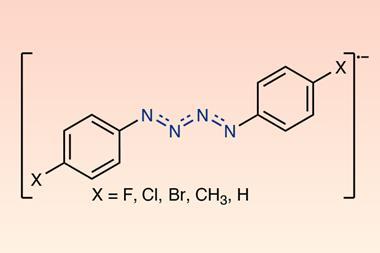Dendrimer DNA carriers broaden range of virus targets
Researchers in China have developed a new biopesticide by tricking a virus into attacking several species of insect it normally wouldn’t.

Conventional pesticides are widely used to boost crop production and feed the world’s growing population. However, health and environmental hazards have seriously reduced their appeal and increased the demand for alternatives.
Biopesticides are environmentally friendly, do not leave harmful residues and can be more effective in the long term. Virus-based biopesticides are one type of biopesticide. However, unless the correct cell receptor is present the virus cannot interact with the target’s cells. Although this avoids potential side effects to non-targets, it also restricts their general use and price. Now, researchers led by Jie Shen at the China Agricultural University have developed a simple way of encapsulating the Helicoverpa armigera nucleopolyhedrovirus (HaNPV) baculovirus in polymer nanocarriers to remove the virus’s specificity.
Shen’s team prepared HaNPV DNA and star-shaped dendrimer complexes and fed them to black cutworm larvae and grasshoppers. HaNPV can only infect cotton bollworms through specific gut cell membrane receptors. Both black cutworm larvae and grasshoppers are consequently immune to HaNPV DNA alone, but when delivered by the dendrimer complex they lose their resistance and die in a short range of time. ‘We have broken the species limitation of insecticidal viruses in pest management,’ says Shen.
This method ‘widens our approach to protect plants with baculovirus-related products. The use of nanocarriers for eliminating non-host insects is a remarkable achievement,’ says Boguslaw Szewczyk, a recombinant vaccine expert from the University of Gdansk, Poland. However, he does caution that the underlying mechanism is not fully understood and that this, together with crop field tests, will need to be studied before real-life applications.
References
This article is free to access until 6 July 2016
X Liu et al, Polym. Chem., 2016, DOI: 10.1039/c6py00574h












No comments yet